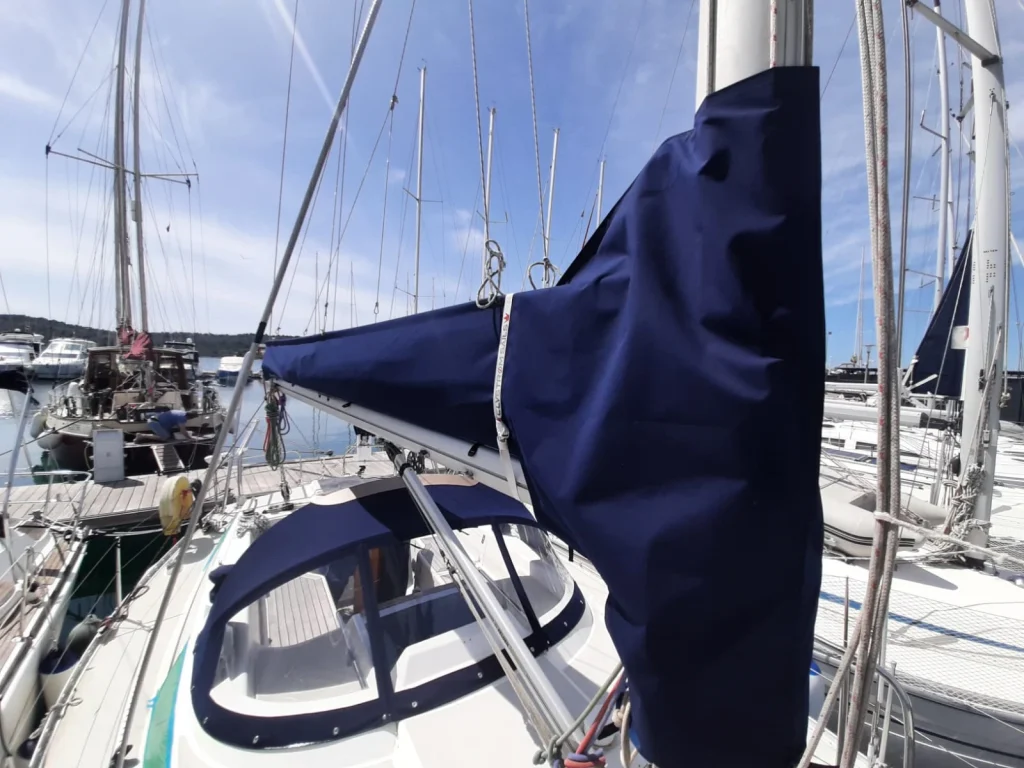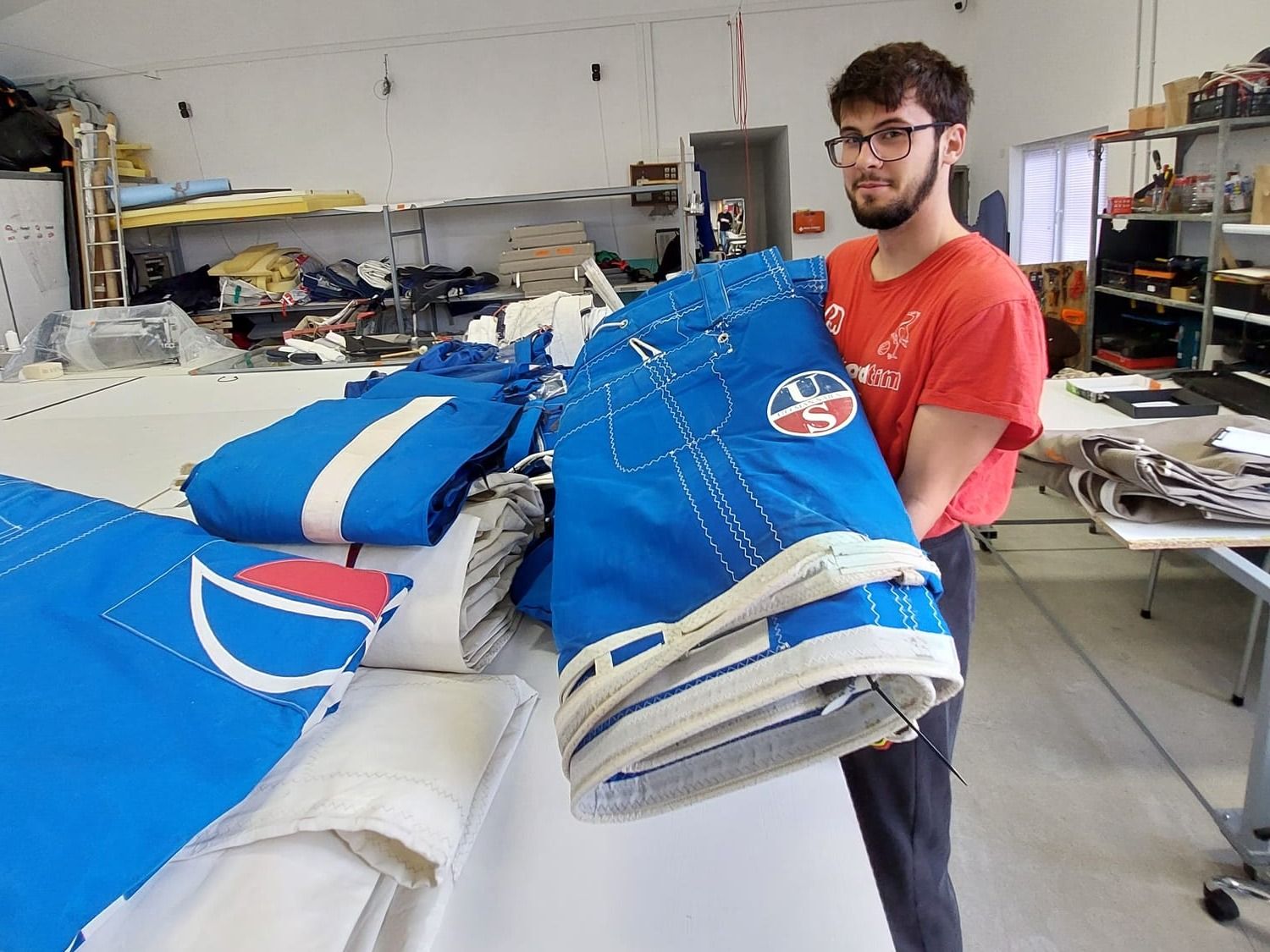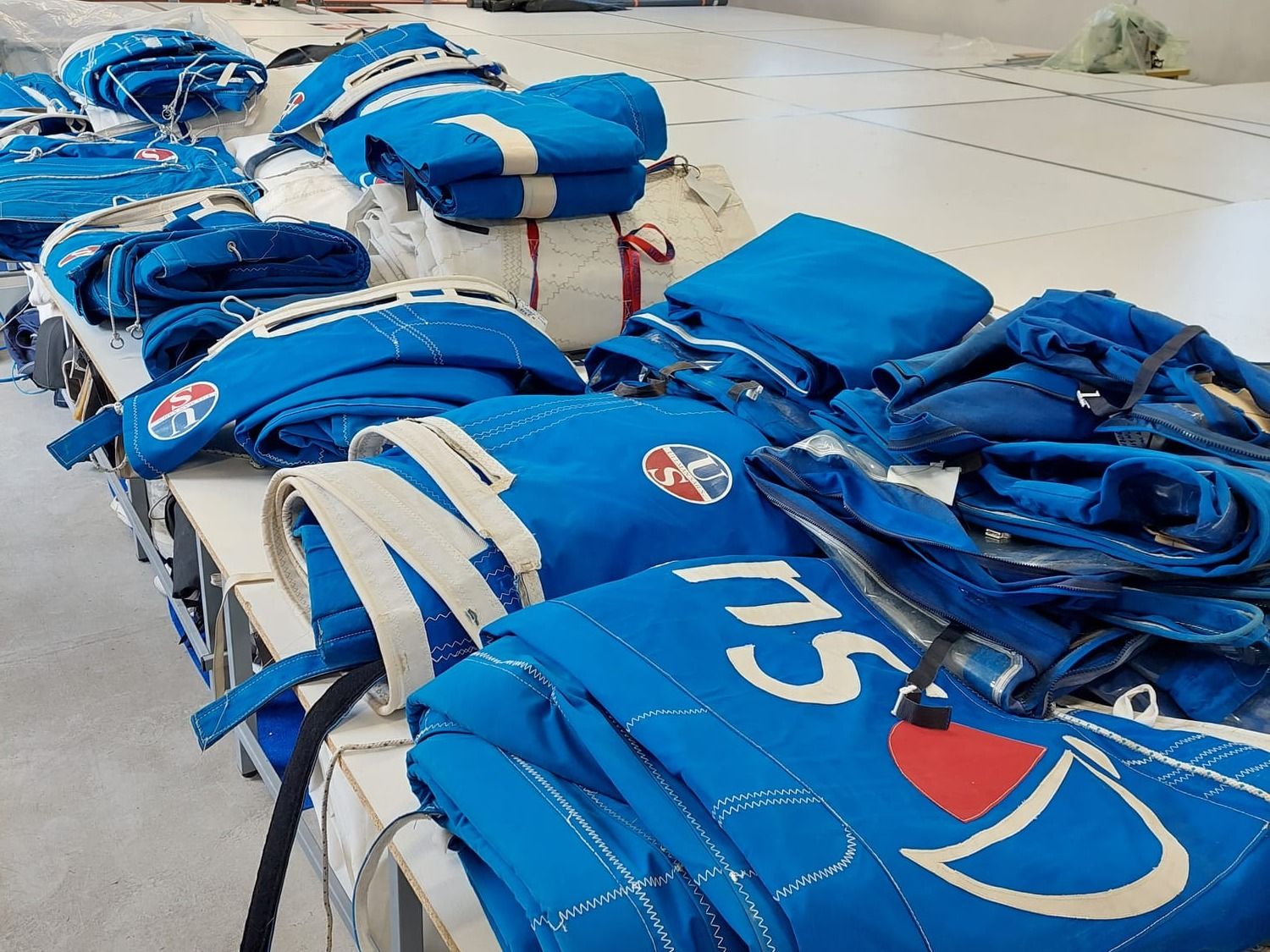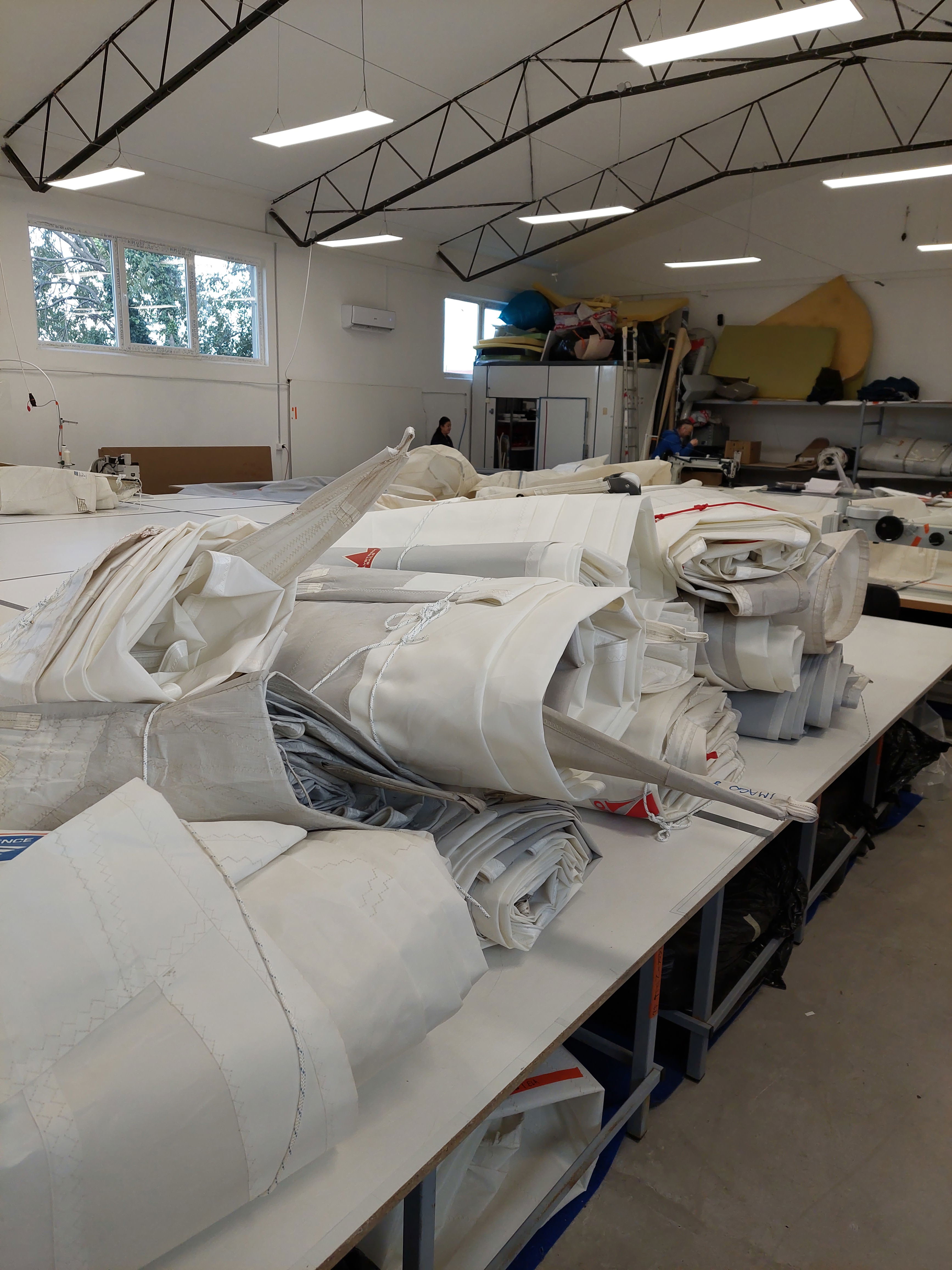How to properly store your sails and accessories off-season
Putting your sails to bed the right way can add seasons to their life, preserve performance, and save you money on preventable repairs.
Off-season storage isn’t just “wash and stash”—it’s a short checklist that pays long-term dividends.

1) Pre-Storage cleaning: salt off, stains out
- Rinse thoroughly with fresh water.
Salt crystals abrade fibers and attract moisture. - Wash gently.
Use a sailmaker-approved sail & canvas cleaner in lukewarm water. Avoid harsh detergents.
Skip chlorine bleach—it can weaken stitching and destroy laminated films. - Spot-treat stains.
- Rust: use an oxalic-acid–based cleaner sparingly, then rinse well.
- Organic/mildew: use specialty mildew removers safe for sailcloth (or a diluted peroxide-based cleaner).
- Rust: use an oxalic-acid–based cleaner sparingly, then rinse well.
- Hardware care.
Rinse hanks, sliders, headboard, clew rings, and luff tape; dry fully to prevent corrosion prints on fabric.
2) Drying: 100% dry means 0% Mildew
Spread sails in a shaded, well-ventilated area until bone-dry—no damp seams, bolt ropes, or batten pockets.
Sun-baking can cook resins; choose airflow over heat.

3) Inspection & repairs before the nap
Do a five-minute check while everything is clean and flat:
- Seams & stitching: look for UV-burnt or popped threads
. - Chafe points: batten pockets, spreader patches, reef points, clew/ tack areas.
- Furling UV covers: inspect leech/foot cover for chalking, cracks, or loose seams.
- Headboards & cringles:
check plates, webbing, and rivets.
If you spot issues, repair before storage; small flaws worsen in a damp, folded state.
4) Fold or Roll? It Depends on the Cloth
- Woven Dacron®/polyester: fold loosely and vary fold lines each season to avoid permanent creases.
- Laminates (Mylar®/film, aramid, carbon, high-modulus laminates): roll on a wide tube or by hand; avoid sharp creases that damage films and fibers.
- Downwind sails (nylon spinnakers/gennakers): roll or very loosely flake; never compress hard.
Remove battens and label them by pocket.
Store battens straight and untensioned.
5) Bagging & labeling: let the sail breathe
- Use breathable sail bags (cloth or mesh). Avoid plastic bags that trap moisture.
- Add a label card inside: sail type, boat, luff/leech/foot, last service date, notes.
- Include a soft desiccant only if the bag is still breathable; don’t hermetically seal.
6) The storage environment: cool, dry, dark
- Target a cool, dry, shaded space with airflow.
- Keep bags off the floor (pallet or shelf) and away from heaters, boilers, and direct sunlight.
- In humid locations, use a dehumidifier and check periodically for condensation.
- Protect from pests; avoid oily shelves and rusty nails that transfer stains.

7) Accessories matter: lines, covers, and hardware
Running rigging (sheets/halyards):
- Soak in fresh water with mild soap; agitate by hand or in a front-loader (bagged).
- Rinse thoroughly and air-dry out of direct sun.
- Coil loosely; avoid tight kinks. Inspect for glazing, core slippage, or cuts.
Furling gear & covers:
- Remove furling headsails—don’t store them furled on the forestay.
- Rinse UV covers; if the fabric powders/chalks, plan a replacement.
Blocks/shackles/buckles:
- Rinse, dry, and lubricate sparingly with sailcloth-safe products (PTFE/silicone where appropriate). Keep oils off the fabric.
Biminis, dodgers, and canvas extras:
- Apply the same routine: rinse, mild clean, full dry, inspect stitching/windows/zips.
- Lubricate zippers with a dry lube; store flat or loosely rolled.
8) Mid-winter checkups & spring Wake-Up
- Monthly air-out: on a dry day, open bags, check for odor or damp, and refold to shift crease lines.
- Pre-season: unbag early, verify hardware, battens, slides, and reefing gear; address any notes from your label card. You’ll launch faster and sail better.

9) Common mistakes to avoid
- Storing sails even slightly damp.
- Creasing laminates or repeatedly folding on the same line.
- Using chlorine bleach on any sail; it degrades stitching and films.
- Long-term storage in sealed plastic or hot lofts/attics.
- Leaving furling genoas on the stay all winter.
The Rempar winter sail service
At Rempar Sailing d.o.o., we offer an end-to-end off-season program tailored to Adriatic conditions:
- Professional wash & fresh-water flush
- Mildew/stain treatment (sailmaker-approved chemistry)
- UV cover inspection and replacement
- Restitching, patching, and hardware servicing
- Batten inspection, labeling, and straight storage
- Climate-controlled, breathable storage with mid-winter checks
We’ll return your sails ready to hoist—clean, measured, and documented—so your first tack of spring feels like mid-season form.


